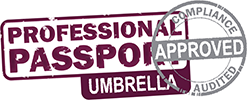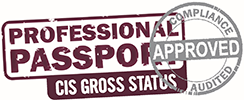Things to think about before going self-employed
The opportunity to work for yourself is exciting but can also be daunting. Whilst being your own boss might sound like a great idea, you need to remember the responsibility that comes with it. We have gathered a few points that you may want to consider before taking the leap to becoming self-employed.
Savings
Have you got savings to help you get by for the first few months? Often, starting a business is a slow and difficult feat so having some financial support to pay for basics such as rent is handy. There is also going to be times when you come across extra expenses that you haven’t budgeted for, so having money behind you is essential.
Managing your finances
You want to keep your personal finances separate from your business finances, which is a lot more difficult than it sounds.
You may want to put away a percentage of every invoice into a separate account and use this for tax, so it does not creep up and surprise you at the end of the year. Another tip is to do your accounts monthly, rather than leaving them until the end of the year. This way the workload is much more manageable.
The other option is to hire an accountant. Not everyone who is self-employed needs one, and it is an extra cost that needs to be factored in, however in the long run, hiring an accountant can save you time and stress.
Insurance
Going self-employed means you need to sort your own insurance cover. Some policies you need to have as a legal requirement, whilst others are worth having to reduce the risk you face.
Employer’s liability insurance is a legal requirement if your business employs one or more other people. This provides cover to pay compensation and legal fees if an employee sues you for illness or injury caused at work. If you do not have this insurance, you can face fines of up to £2,500 a day.
Other insurances worth looking into to include public liability insurance and professional indemnity insurance. Whilst these may not be a legal requirement, an increasing number of businesses refuse to work with those who do not hold certain insurances.
Registering as self employed
Once you have decided self-employment is for you, you need to register with HMRC. You can do this online as soon as you have started your business. Remember, you need to be registered with HMRC before the 5th October in your business’ second tax year, or you could be facing a hefty fine.
Here, you can also apply for the CIS (Construction Industry Scheme). All contractors who work in the construction industry need to register with this scheme. Upon registration, you will receive a Unique Tax Reference (UTR) number which you can give to your pay provider and it will allow them to verify your details with HMRC.
Getting a mortgage
Another factor you need to keep in mind is that getting loans, including a mortgage, can become more difficult when you become self-employed. You no longer have a guaranteed income which can put some lenders off as the chances of them getting their money back is decreased. This is something you need to consider if you are looking at buying a home in the near future.
A solution you may consider is working through an umbrella company. Apex provide a CIS pay model that is flexible enough for you to work for yourself whilst providing some support, such as sorting your pay out. For more information, visit the CIS section of our website to see how we can help you.




